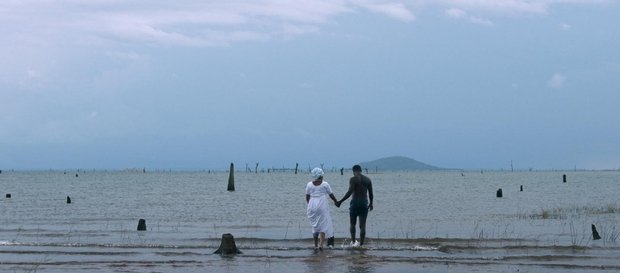Sakawa is a Ghanaian term which corresponds to the mixing of modern illegal practices – primarily internet fraud – with traditional African rituals in order to promote success. It is also where Ben Asamoah draws both the name of his debut documentary and the subject matter. In doing so, Asamoah shines a light not only on a side of Ghana that is otherwise unseen, but also the other side of side of the coin when it comes to internet fraud, doing so in a sympathetic manner that also makes it a telling insight into the modern world.
The documentary follows several scammers in their day-to-day lives of catfishing white men on the internet, convincing them to send money for visas, and exploiting E-waste for commercial gain. Focusing especially on One Dollar and his sister Ama, there’s a great level of camaraderie depicted in the film that can only arise from multiple people being in a similar circumstance. In this case, it is the poverty in which they live and hope to escape through their acts of fraud.
Asamaoh takes a very detached approach to portraying his subjects, one that is entirely absent of shame or guilt. Instead, he successfully humanises the men and women of his film and explains the reason that so many turn to internet fraud as a means of survival. These are human beings with hopes and dreams. One wishes to emigrate to Italy and start a farm, while another is raising funds to start a hairdressing course, and by the end you cannot help but find yourself rooting for them.
A great level of tragedy pervades the film, as some are seen to succeed where others fail. Moreover, it’s a sad reality that so many of the scammers are themselves being scammed by those around them, be they the witch-doctors who practice Sakawa or corrupt travel agents who con people out of their money with ridiculous stipulations to acquire passports.
This tragedy even extends to the rare moments of comedy within the documentary. While it is initially humorous to see One Dollar putting on a feminine voice to speak with a “client” in the US, it’s impossible to escape the full tragedy existent on both sides. It’s a credit to Asamoah as a filmmaker, then, that he is able to create and maintain this balance throughout Sakawa’s 81-minute runtime.
